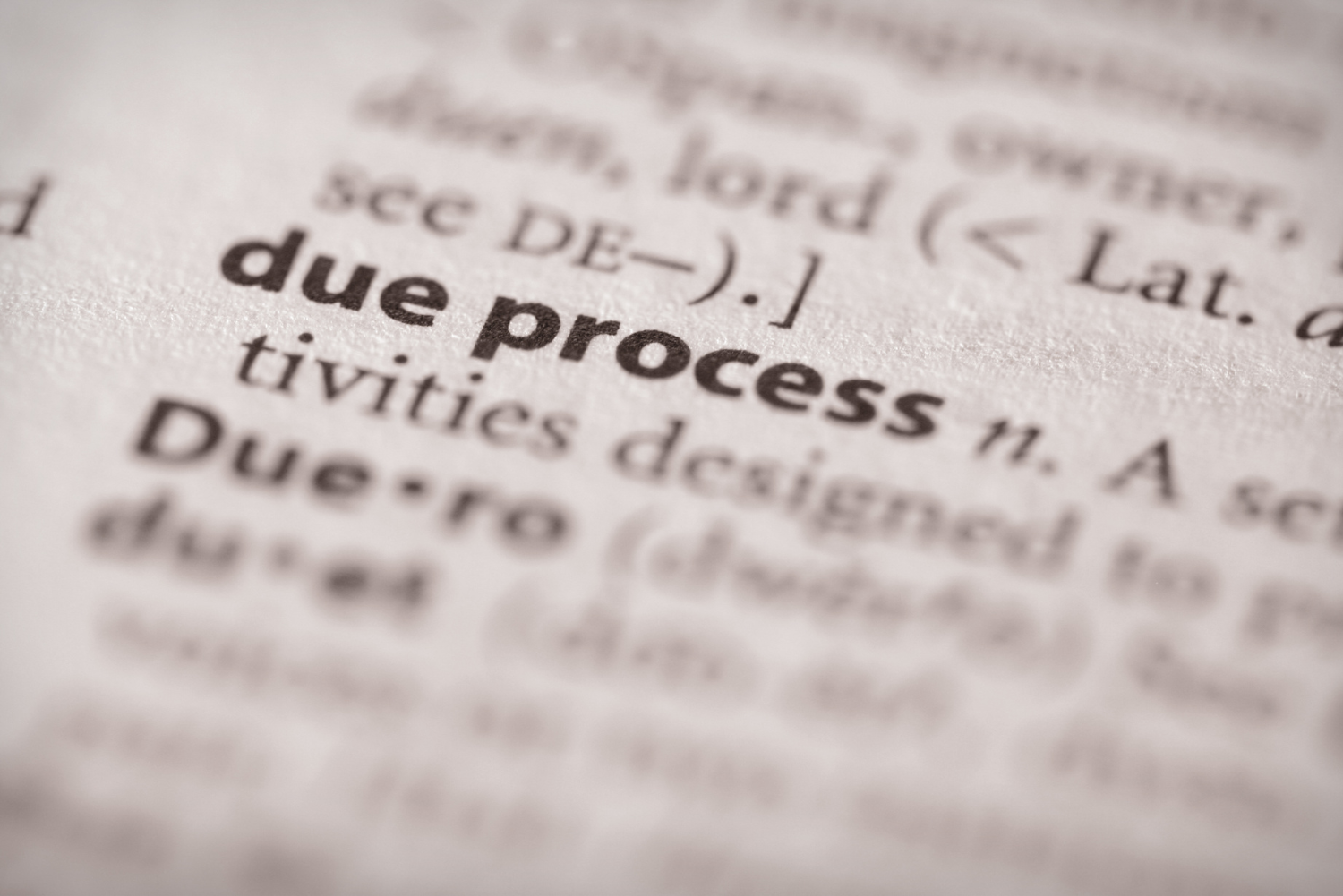
Questions concerning due process often come up when student dismissal is discussed. Exactly what is due process? Did the student receive due process before being dismissed from the program? What steps are deemed “enough” due process? Are students at private institutions guaranteed due process? We’ll address below these common questions and concerns.
Medical school is tough enough so if you find yourself in a situation where due process is needed, reach out to us. We’re experienced in education law.
What is due process?
To be exact, the term is due process of law. It’s usually shortened to due process, but as the longer phrase hints, due process is about a citizen’s protection under the law. The term refers to the safeguards in place that protect a person from actions by the state government (according to the 14th Amendment to the U.S. Constitution) or the federal government (the 5th Amendment).
For individuals attending medical schools, it’s been argued in the court systems that students facing dismissal have the right to due process. The 14th Amendment says that no state can make or enforce laws that take away the rights of U.S. citizens. Also, it declares that no state can take a person’s life, freedom, or property without following the proper legal procedures. With medical education institutions often being state schools, many courts have upheld the view that students have the right to due process when facing dismissal or sanctions.
Public colleges and universities are required to provide due process to students and faculty. The same is not true at private schools. Due process is guaranteed under constitutional law, which means it applies to schools operated by federal, state, and local governments.
What does due process entail?
First, it’s important to know the two parts of due process – procedural and substantive. Procedural, like the word hints, refers to procedures or processes. If a student is about to lose their freedom (to attend school), the most basic procedures include notification of possible dismissal and a hearing for the student to refute evidence and present their own of innocence.
Substantive is related to the substance of an accusation. In other words, the school’s decision for dismissal or sanctions should not be unfair or arbitrary or on a whim. There should be a legitimate concern about the student’s performance.
For a public medical school, the most basic level of due process begins by following the rules and regulations written in the school’s policies. It’s in policies that procedural steps for disciplining a student and the substantive considerations for what’s deemed an issue or concern are outlined.
(So as a student, read school policies thoroughly. Know what is in the Student Code of Conduct and in a course syllabus. Schools are required to follow them when levying sanctions and possible dismissal.)
How much due process is required?
About the question – how much due process is owed to a student – schools (and courts if a case is litigated) look at the type of dismissal or sanction being levied.
Current court decisions give education institutions more leniency with due process if the dismissal is of academic nature. In the U.S. Supreme Court’s decisions in the Horowitz and Ewing cases, it was determined that courts are not well-suited to assess academic performance, especially when it’s a purely academic decision. Courts don’t have the professional expertise to evaluate the academic qualities suitable for fields like medicine.
The same is not true, though, for disciplinary actions. For medical students, professionalism violations are the most common causes for disciplinary dismissal. Courts have set the precedence that students facing disciplinary sanctions have the expectation of full due process under the law. From notification to an initial hearing to an appeal to lawyer assistance along the way, students at public universities have these rights.
Also note, all medical schools – undergraduate and graduate – should have policies for due process. It’s an accreditation standard. This requirement for accreditation came about because students have litigated their dismissals, both for academic and for professional reasons. Schools and accreditation boards recognize the importance of due process – both for the protection of the student and school.
The Education Litigation Group Specializes in Difficult Cases
At the Education Litigation Group, we’re a team of seasoned professionals who know education law. If you find yourself questioning your right to due process, contact us. While due process is a simple principle, it can be confusing in the follow through.
